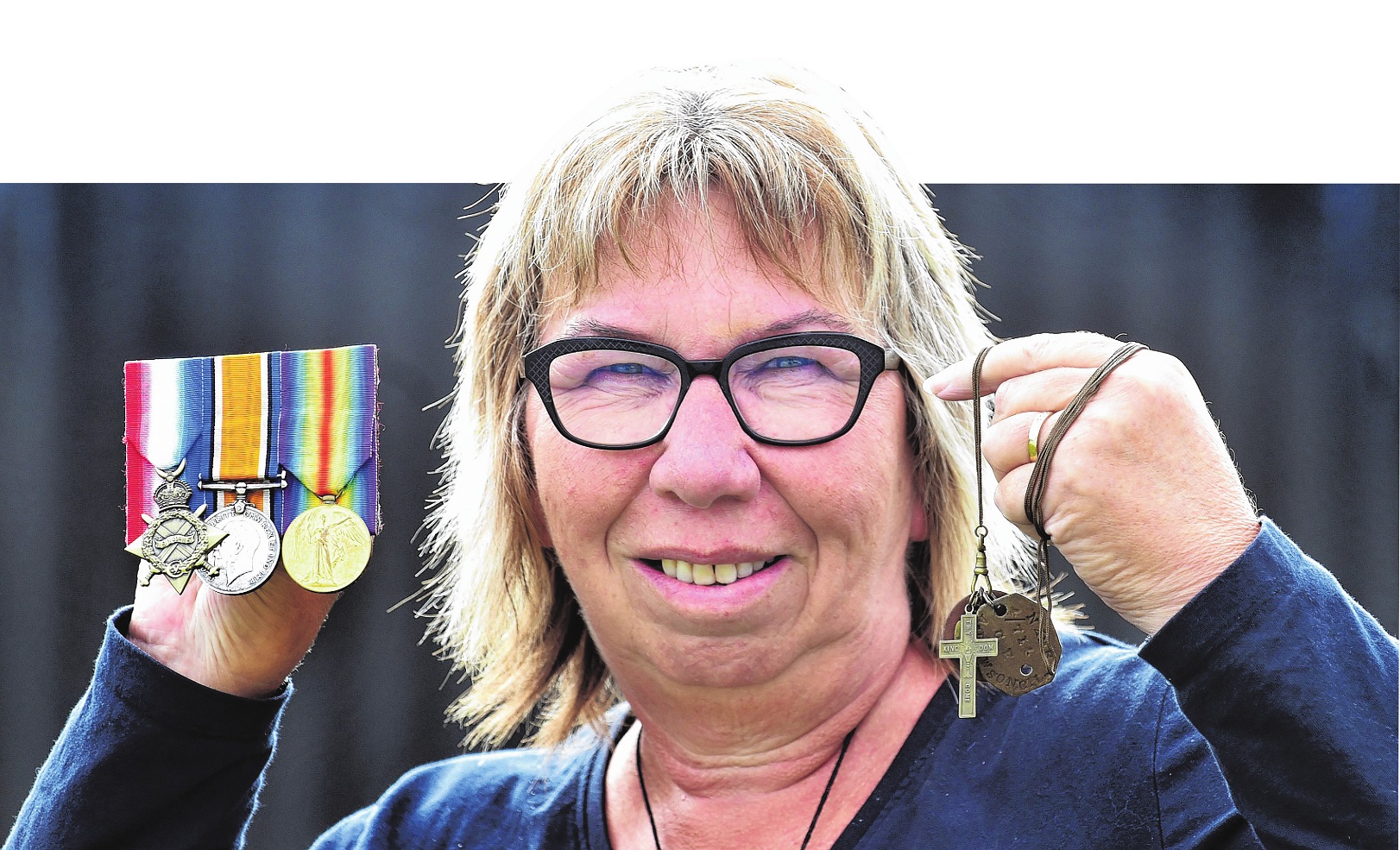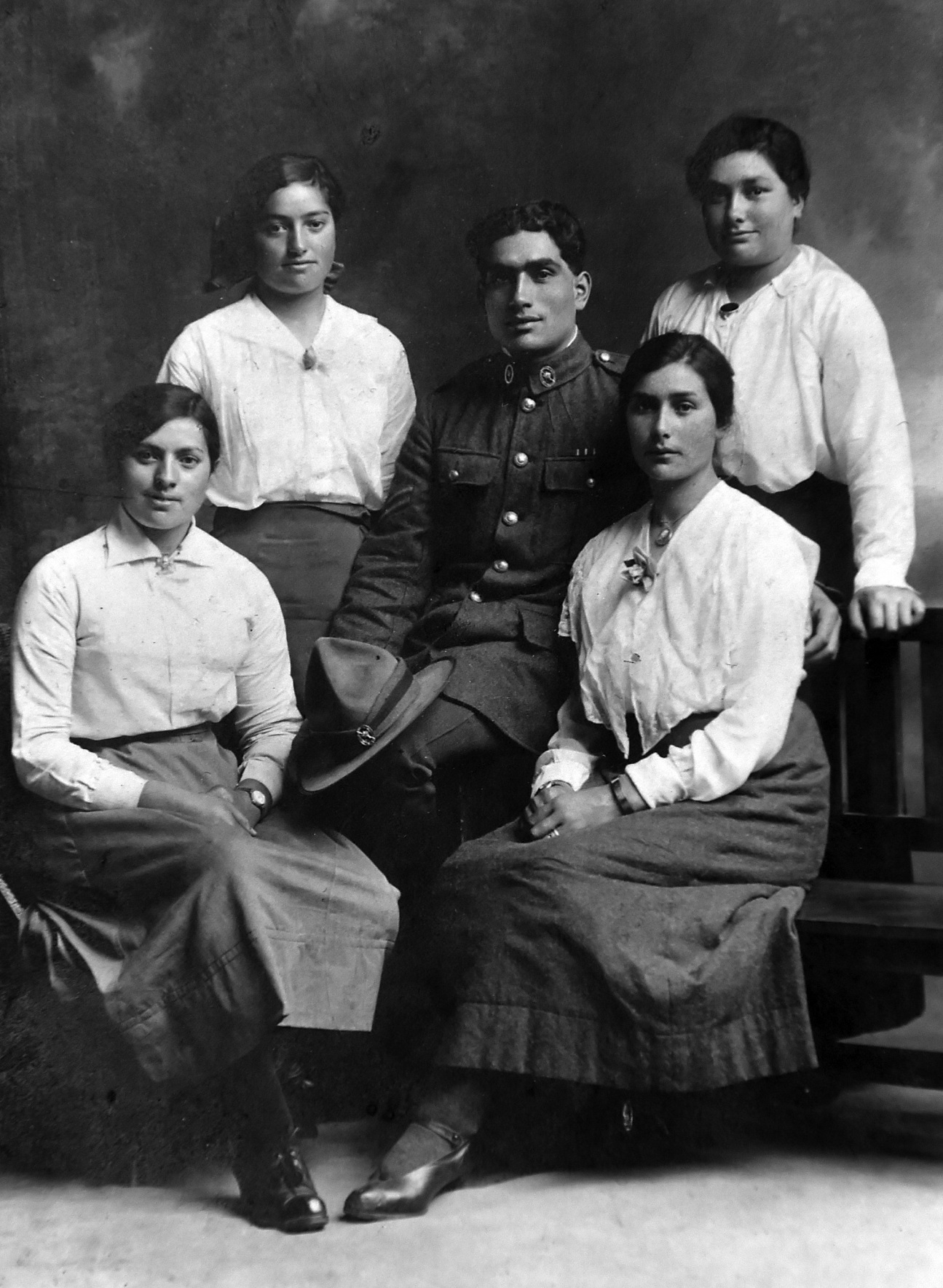

Cindy Kennedy, an avid genealogist and researcher, has had war medals from her great-uncle returned to her after unlocking a tale fit for any best-seller list.
The great-uncle left Stewart Island for the front more than 100 years ago, was admitted to hospital countless times and then returned to New Zealand, only to die young after being forbidden from marrying the woman of his dreams.
Alfred Kahu Dawson, known as Fred, was one of 12 children who grew up on The Neck, an isolated part of Stewart Island.
In 1915, aged 22, he left his siblings behind to join the Māori Pioneer Battalion to fight in World War 1.
The next four years changed his life as he served in Egypt, Turkey and France.
Like many soldiers, he spent considerable time in hospital during the war.
He returned home and, within a few years, he had more or less disappeared.
But Mrs Kennedy started digging.
An avid genealogist and researcher, she discovered a letter from an aunt to "Dear Dot" in the Otago Witness, which said a letter from France revealed Fred was struggling with the cold.
"So I got curious to who this gentleman was because it’s my nana’s brother.
"I got out some photos ... I was trying to identify who these boys were ... and so I started my research.
"... I found that he was buried in the Riverton Cemetery and had died on December 1, 1922."
She was adamant her great-uncle’s grave deserved a headstone — for 98 years he was unknown.
"I thought this is unacceptable. This man served overseas — four years and one day — for our country."
Veteran Affairs agreed and arranged to have the headstone installed.
Then a phone call came from a Canterbury family that had discovered Fred’s war medals, dog tags and army-issue dictionary while clearing out their great-aunt’s home after she died.
The great-aunt and Fred were star-crossed lovers who were forbidden to marry.

"So they weren’t allowed to marry. He must have returned to Riverton."
His 22-year-old sweetheart’s family had been told the couple were serious about one another and wanted to marry. But her father disagreed with the union.
Mrs Kennedy said there was no explanation why the union never occurred. She believed cultural or social influences of the era may have played a role.
"She must’ve been really torn ... and must have loved her dad for her not to run away."
Fred died three years later, aged 28.
"He died of a broken heart. But his death certificate said he had pneumonia."
Since Mrs Kennedy’s discovery, her Ngāi Tahu-Stewart Island whakapapa had travelled to The Neck to explore the Dawson ancestral land where others have been buried.
"There’s all these connections there ... It was just amazing for the grandchildren.
Watching over the grandchildren while they took a quick skinny dip left an indelible memory.
"I said to my husband, ‘You know, all my nan’s brothers and sisters — they did all this. And here we are sitting here doing it with us’. It was pretty amazing."
It made all the hours researching more than worthwhile.
"One day they’re going sit back and go ‘Thank God Mum did this.’
"For me, I’m leaving the story behind that I never knew."
By Toni McDonald











